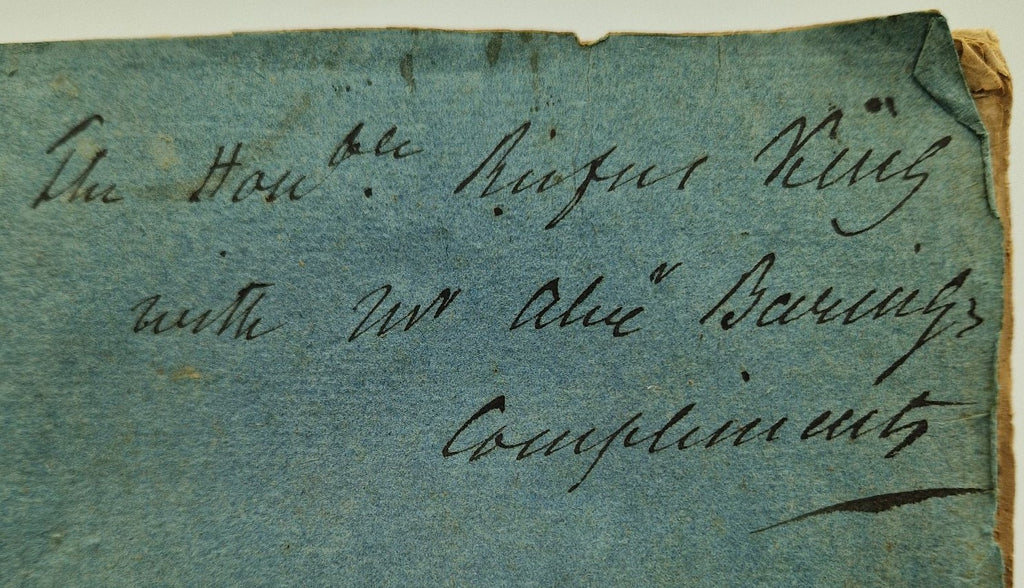An Inquiry into the Causes and Consequences of the Orders in Council;
BARING, Alexander


London: Printed for J.M.Richardson. 1808.
Second edition. 8vo in 4s. pp. iv, 179 [1bl]. Uncut in the original blue wrappers, large section of the spine is missing but original label is present. Heavily foxed. Inscribed in black ink on the front wrapper: "The Honble. Rufus King with Mr Alexr Baring's Compliments".
This work, in which Alexander Baring makes the case for a liberalising of British trade policy towards the United States, was popular and influential, running to three editions in 1808 alone. At the time Britain had imposed trade barriers with America to prevent American trade with France with which Britain was at war. Baring was an MP, the President of the Board of Trade and Master of the Mint. The son of the founder of Baring Brothers Bank, he had extensive commercial interests in the West Indies and, through his marriage to Ann Bingham (the daughter of a Senator), in America. Naturally Baring stood to gain from the favourable trade relationships for which he was arguing here. Baring no doubt expected to get his was for, as the Duke de Richelieu said: "The are six main powers in Europe; Britain, France, Austria-Hungary, Russia, Prussia and Baring Brothers". However, in this case he was unsuccessful, America declaring war on Britain in 1812, caused, in large part by these trade disputes.
Rufus King, to whom this copy was given, was a Founding Father and a signatory of the United States Constitution. In 1796 George Washington appointed him as Minister to Great Britain (what would now be the US Ambassador to the UK) and it was no doubt during this period that he met and befriended Baring.
By any standards, King and Baring were big beasts and this copy of Baring's commercial arm-twisting is a nice testimony to their relationship.
